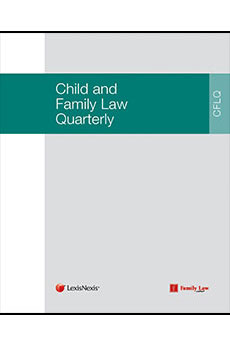- News & Comment
-
Online Shop
Online Services
Looseleafs
Law Reports
Books and eBooks
-
CPD & Events
Webinars
Events
- Authors
- About Family Law
- Contact


Dr Sue Farran, Reader in Law, Newcastle Law School
Professor Jennifer Corrin, Professor of Law, TC Beirne School of Law
Keywords: Customary adoption - Torres Strait, cultural practices - Pacific Island countries - legal pluralism
Throughout the Pacific region, customary forms of adoption are widespread, and predominantly exist alongside formal, state-regulated adoption processes. In most countries, the state does not recognise or accommodate customary adoption, giving rise to a number of practical problems. Attempts to reform the law have rarely gone to the root of these issues, which stems partly from the contrasting perceptions of adoption. The recent passage into legislation of the Meriba Omasker Kaziw Kazipa (Torres Strait Islander Child Rearing Practice) Act 2020 in Queensland, Australia, demonstrates an attempt to construct a bridge between customary and formal adoption. This article puts the new Act in context by highlighting key differences between customary and formal adoption and identifying the practical consequences of failing to accommodate the former. The law reform proposals from elsewhere in the Pacific are reviewed and contrasted with the Torres Straits Islanders’ initiative, with a view to assessing whether any of these offers a transferable Pacific model.
This article has been accepted for publication in Child and Family Law Quarterly in Issue 1, Vol 33, Year 2021. The final published version of this article will be published and made publicly available here 24 months after its publication date, under a CC-BY-NC licence.





